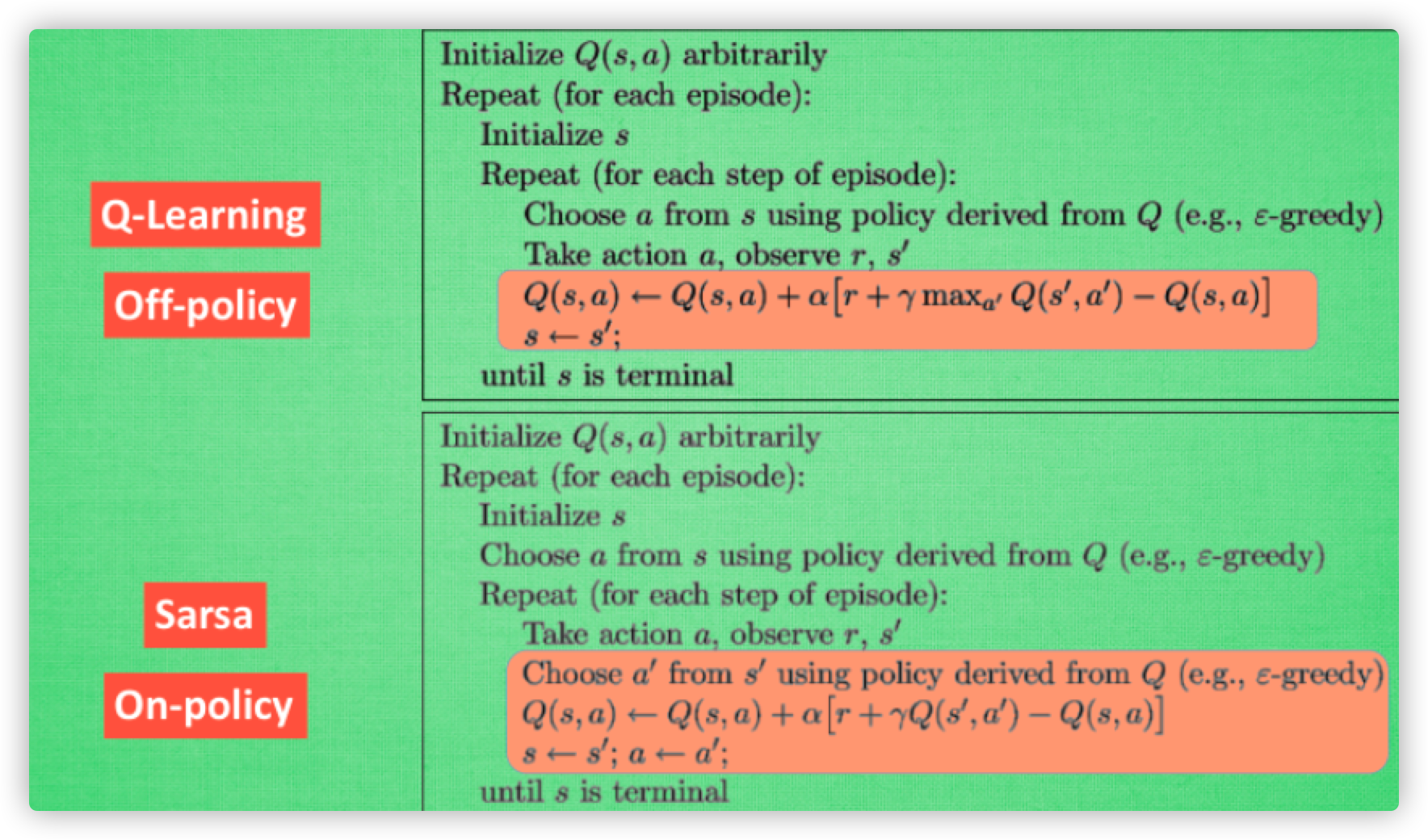概述:强化学习经典算法Sarsa算法从算法过程、伪代码、代码角度进行介绍。
Sarsa
Sarsa 跟 Q-Learning 非常相似,也是基于 Q-Table 进行决策的。不同点在于决定下一状态所执行的动作的策略,Q-Learning 在当前状态更新 Q-Table 时会用到下一状态Q值最大的那个动作,但是下一状态未必就会选择那个动作;但是 Sarsa 会在当前状态先决定下一状态要执行的动作,并且用下一状态要执行的动作的 Q 值来更新当前状态的 Q 值;具体差异可以看下图:

那么,这两者的区别在哪里呢?这篇文章里面是这样讲的
This means that SARSA takes into account the control policy by which the agent is moving, and incorporates that into its update of action values, where Q-learning simply assumes that an optimal policy is being followed.
简单来说就是 Sarsa 在执行action时会考虑到全局(如更新当前的 Q 值时会先确定下一步要走的动作), 而 Q-Learning 则显得更加的贪婪和”短视”, 每次都会选择当前利益最大的动作(不考虑 ϵϵ-greedy),而不考虑其他状态。
那么该如何选择,根据这个问题:When to choose SARSA vs. Q Learning,有如下结论
If your goal is to train an optimal agent in simulation, or in a low-cost and fast-iterating environment, then Q-learning is a good choice, due to the first point (learning optimal policy directly). If your agent learns online, and you care about rewards gained whilst learning, then SARSA may be a better choice.
简单来说就是如果要在线学习,同时兼顾 reward 和总体的策略(如不能太激进,agent 不能很快挂掉),那么选择 Sarsa;而如果没有在线的需求的话,可以通过 Q-Learning 线下模拟找到最好的 agent。所以也称 Sarsa 为on-policy,Q-Leanring 为 off-policy。
参考文献
- xxx
- xxx